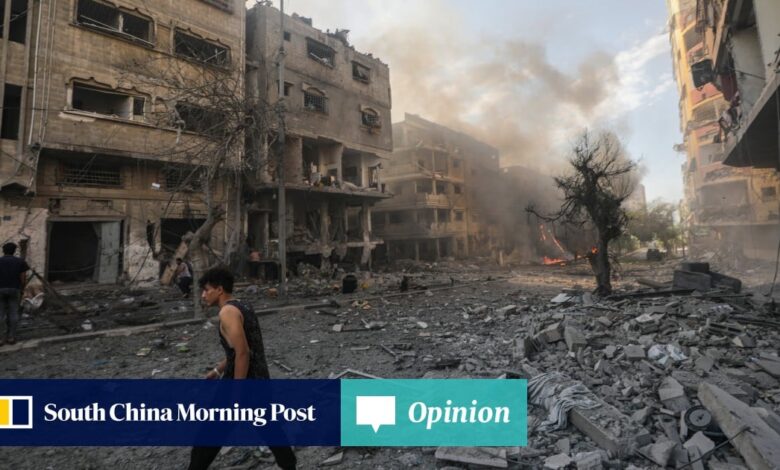Opinion: As Gaza and Ukraine wars cast shadow on Halloween, why create more horror in a world already full of it?

In January, UN Deputy Secretary General Amina Mohammed said violent conflicts had reached their highest number globally since World War II, and 2 billion people – a quarter of humanity – were living in places affected by conflict. She added that six out of seven people worldwide were plagued by feelings of insecurity.
While a significant share of the world population faces terror every day, businesses around the world are luring customers to experience the thrill of short-lived horror and spend money on tacky costumes and decorations.
No scary makeup: Halloween fun banned by China underground station
No scary makeup: Halloween fun banned by China underground station
According to scholars, Halloween has been observed for 2,000 years, first by Celtic people and later by Catholics.
European immigrants brought the festival to the United States, and it evolved to incorporate elements such as costumes and pranks. Some Europeans and Americans continued to celebrate Halloween during World War II, but many communities cancelled their celebrations, meaning no parades or large public gatherings.
Halloween has become a global commercial phenomenon, and this year’s celebration is likely to be bigger than previous years as the world emerges from the shadow of Covid-19.
In the US, the National Retail Foundation (NRF) expects this year’s Halloween spending to hit a record US$12.2 billion, exceeding last year’s record of US$10.6 billion.
In Hong Kong, the city’s tourism board and businesses are hoping to use the occasion to attract visitors and generate spending.
While many consider the move extreme, the subway authorities may have a point: Why should we create more horror in a world full of it?
Of course, many of the costumes and tricks are simply intended for children to have fun. But some studies have shown horrific images could have an adverse effect on children with a history of trauma, and psychologists have reminded parents to protect their children if they are frightened.
Some argue that facing fear is necessary to overcome it. However, this does not work for everyone – some people may find their fears intensify the more horror movies they watch.
In a world full of real-life terror, is there a way to make a statement against horror, fear and bloodshed instead of encouraging people to become desensitised to them?
One way to put a less-scary spin on the occasion could be to dress children in beautiful or cute costumes that show how precious life is. The holiday could also be a time for celebrating and encouraging peace or raising funds for those suffering in conflicts.
Instead of decorations that are meant to create fear, why not decorate venues with colourful and bright objects that bestow hope, love for life, and call for the end of war?
That way, we can make a more powerful statement against the violence, war and horror now spreading in different parts of the world.





